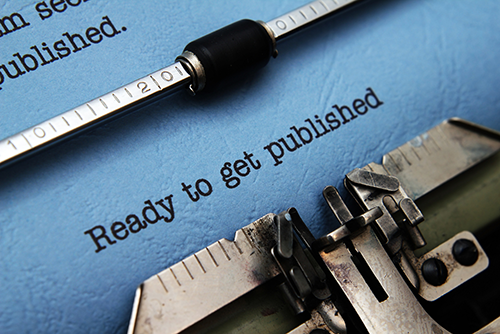“Now, whenever I read a real book, a paper book, I touch the page at certain words, to learn more, as if I'm reading on a digital device.”
—A friend of mine, in her forties
Readers are picking up new habits, fast. Every one of us. We might not even be aware that we are doing it. And those among us who are digital immigrants (who came of age pre-Internet, as opposed to digital natives, who grew up with this) are surprising even ourselves.
Isn't this exciting? I hate to be Pollyannaish about it, but I think it's thrilling, because wherever there are new types of reading experiences, there will be new ways of storytelling, too.
But before I reflect further on my personal thoughts about contemporary publishing, I'd like to look at the macro-view of how book publishing is changing in the face of the digital revolution. From what I've been able to glean from watching the industry and listening to the prediction of my favorite bloggers and commentators (two of whom are Richard Curtis and Anthony Haynes), there are three areas of change happening in some form or another: disintermediation, unbundling, and convergence.
Disintermediation is the removal of the middleman, the intermediary. In the case of publishing this means readers and authors are communicating through social media directly with one another. We are seeing this new reality grow as more and more writers self-publish and sidestep the need for a literary agent, traditional bookstore, even a traditional publisher. Unbundling refers to separating a publisher's dual roles -- as provider of services (funding, copyright registration, editorial, design, production, packaging, printing, and distribution) and as provider of a brand (an example is the value of the Knopf name to booksellers and libraries). Unbundling has been happening for a while, also, ever since publishers started encouraging would-be authors to develop their own audiences, their own followings, their own brands (ironically, in order to earn a place on their lists).
What fascinates me most is the third area of change: convergence. The dictionary definition of the word, from Merriam-Webster, includes this one: the merging of distinct technologies, industries, or devices into a unified whole.
Convergence is where new forms of storytelling emerge. What were previously distinct, different media are now being experienced in one sitting, together. So, convergence has led us all to what is now called transmedia storytelling (a term attributed to USC Professor Marsha Kinder), or, alternatively, transmedia narrative or multiplatform storytelling. This is the technique of telling a single story or story experience across multiple platforms and formats using current digital technologies. It is often interactive, oftentimes educational, sometimes even playful.
The amazing thing about transmedia storytelling is that it is text-centric. In fact, it celebrates story. As of this writing, I have found a handful of examples: Faber/Touch Press has created an app for The Waste Land by T.S. Eliot, with the full text of the poem, critical notes, a facsimile of the original typescript, a variety of audio readings (including two by Eliot himself, and one by Viggo Mortensen), plus a video rendition; Eastgate offers contemporary hypertext fiction (www.eastgate.com); and Small Demons (www.smalldemons.com) specializes in collecting all sorts of information on the details of a story.
One day, before too long, we will all expect to engage with texts on multiple levels across a variety of platforms. Which means that those of us who produce culture—as in those who create published works—will be knee deep in this convergence culture. Books will still be authored by a single individual, or by a team of co-creators working together. But the new teams might look a little different than they did in previous eras. They might include author, app developer, researcher, graphic designer, game developer, cartographer, producer, and editor, for starters.
For the purposes of this essay, let's call the convergence of old publishing models and new publishing models publishing convergence. I am happy to climb aboard this new hybrid and see where it can take me.
WANT TO REPRINT THIS ARTICLE ON YOUR SITE OR IN YOUR EZINE? You may, but only if you also include the following: "Copyright 2013 by Beth Lieberman. All rights reserved. Contact: li***********@so***.com — www.laeditorsandwritersgroup.com.”
- Publishing Convergence: What It Is and What It Means for Us All - July 15, 2013
- On Writing and Revelation - April 29, 2012


2 Comments
I loved this article because it clarified the maze writers are tracking on a daily basis. This industry has turned upside down in ten years. Many of the changes benefit authors. No longer do we sit and wait to be chosen. With a good story, editing and intense marketing, there's room for more stories! Unbundling and convergence are part of my vocabulary now. Thanks, Beth!